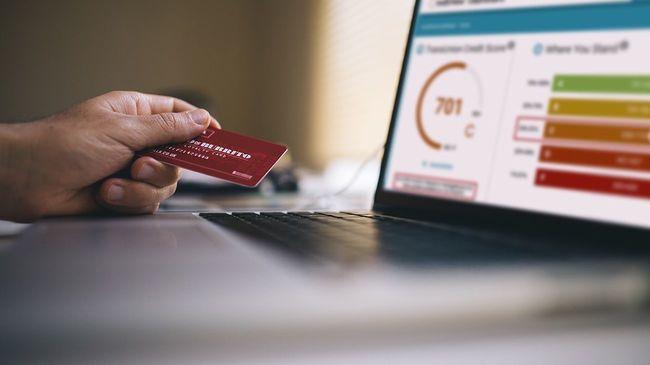What is a Good Credit Score to Buy a Home?

Your credit score can make or break the likelihood of financing your home. To get the lowest mortgage rate, you need the highest credit score you can get. Even half a point difference can have a monumental impact on your mortgage loan and mortgage payment over the life of the loan.
What credit score do I need to buy a house?
The FICO® score takes into consideration payment history, current levels of debt, length of credit history, new credit, and types of credit used. It typically ranges from 300 to 850. A good score is usually in the range of 680-700.
- 800 or higher: Exceptional
- 740-799: Very good
- 670-739: Good
- 580-669: Fair
- 579 or lower: Poor
While many lenders use FICO® scores to help them make lending decisions, each lender has its own strategy. This includes the level of risk it finds acceptable for a given credit product.
Here are tips to help you understand the importance and function of your FICO® score:
-
Even one late payment can reduce your credit score by more than 50 points. On-time payments are the most critical factor in calculating your FICO® score. Be consistent and diligent about making payments on time.
-
A creditor can report a late payment at any time, even if the payment is one day late.
-
A shorter late payment (e.g., 30 days) is not as severe as a later payment (e.g., 90 days).
-
Numerous late payments are calculated into your final FICO® credit score. One missed payment may be an oversight, while five may be detrimental to your financial portfolio.
If your score is not 670 or higher, it’s in your best interest to give it a little TLC, especially if you’re planning to buy a home soon. By improving your credit rating, you’re sure to receive the best mortgage rate.
How to check my credit score?
There are several credit scores you can look up from different credit agencies (Equifax, Experian, and TransUnion). Your FICO (Fair Isaac Corporation), which is the first company to offer a credit-risk model with a score, is the gold standard of models that the majority of financial institutions use. Checking your FICO score is no big mystery and it's easy to check and free.
You're entitled to one free copy of your credit every 12 months from each of the three nationwide credit reporting agencies. The Federal Trade Commission protects this right for consumers and can provide all the necessary free credit reporting information.
Reputable companies can give you all three credit reports for free and even provide apps that alert you when something on your credit profile changes, like WalletHub.
How do credit scores affect interest rates?
A high credit score can save you thousands of dollars in interest over the life of your mortgage loan. Why? Your credit score represents your overall credit history, and lenders consider it a key indicator of how likely you are to repay your mortgage. It's based on your credit report, including the following factors below.
-
Payment history
-
Public records (bankruptcies, judgments, etc.)
-
Length of credit history
-
New credit accounts
-
Accounts in use
-
Credit inquiries
Let's consider an example. Say you're financing a $250,000 loan over 30 years. Interest rates may vary based on your FICO score. You could be looking at monthly mortgage payments as low as $1,228 or as high as $1,472.
What's the minimum credit score for a home loan?
The short answer is: it depends. The minimum credit score you'll need to buy a new home will depend on the type of mortgage you need. For conventional loans, lenders may allow for lower credit scores based on your down payment amount, debt-to-income ratio, savings, or your current income level.
Here are general guidelines for each mortgage program:
Conventional loan: 620
Borrowers interested in a traditional mortgage will likely want a conventional loan. This loan type offers competitive interest rates and flexible repayment options, among other benefits. Those with a credit score below 620 risk missing out on the lowest possible rate, as well as a conventional mortgage altogether.
FHA loan: 580
First-time homebuyers often prefer FHA loans because of their down payment and credit minimums. You can qualify for an FHA loan with a 3.5% down payment and a 580 credit score. However, keep in mind that lenders have their own FHA credit score requirements. If you have a credit score lower than 580, you may still be approved but you will need 10% of the home purchase price as a down payment. Your debt-to-income ratio must also be below 43%.
VA loan: 620
Though VA loans have no minimum credit score requirement, lenders often require a 620 or higher to be considered for approval. VA loans are in place specifically for military families and veterans. You can reduce your chances of being denied a loan by increasing your score before applying.
USDA loan: 640
Are you buying a home in a rural area with a small population? Then you might want to look into a USDA loan. Borrowers with a higher credit score have an easier time qualifying for a mortgage, though the U.S. Department of Agriculture doesn't have a set minimum.
Jumbo loan: 700
Lenders reserve jumbo loans for borrowers living in a higher-priced location and credit scores above 700 typically. The current threshold for jumbo loans is $715,000 (in most areas). Since this program entails larger loan amounts, you'll need a strong financial profile to qualify. Lenders also look for significant cash reserves with jumbo loans.
What credit score is needed to buy a house with no money down?
VA and USDA loans require no down payment. That said, it's critical to put yourself in the best position possible with your credit score. Avoid settling for a lender's minimum requirements, and remember that a higher score translates to a lower mortgage payment in the future.
How to improve your credit score before applying for a mortgage
Follow these strategies, and you're likely to find success:
Make your payments on time
Always make payments on time to improve your credit score. Your payment history accounts for 35% of your credit score, and late payments stay on your credit report for seven years. Even so, the impact of late payments on your score does lessen over time.
Lower your debt and increase earnings
Your credit utilization ratio is the percentage of credit you use on your credit card accounts and makes up 30% of your credit score. Therefore, the higher the balance you have on your credit cards, the lower your credit score. Make sure to pay off your smaller debts first and then start tackling larger debts.
While your income does not directly affect your credit score, it can help take care of debt and affect your ability to get approved for financing a home. Try to get a side job to supplement your income or ask for a raise if you believe it's merited.
Limit your credit applications
Applying for several credit accounts in a short amount of time is a red flag to credit reporting agencies. This makes you seem like you're in financial jeopardy and counts against your score.
In certain situations, FICO understands that sometimes consumers apply for multiple accounts to shop around for the best rate. Multiple credit applications for student loans, car loans, or mortgages made within a 45-day window count as only one application. Opening multiple new credit accounts in a short amount of time could impact your score by 10%, so be cautious.
Closing credit accounts to temporarily raise your credit score could potentially hurt your credit score rather than help it, too, because it may influence your credit utilization ratio.
Settle your debt
Hiring a company to negotiate or settle your debt so you can pay a reduced amount is not in your best interest. You'll likely be advised to stop making monthly payments until the settlement company can convince the creditor to accept a negotiated, reduced amount. This will, in turn, do more damage to your credit and may result in a mortgage loan denial.
Avoid dealing with debt collectors by staying on top of your payments.
For best results
There are no shortcuts when it comes to improving your credit score. It boils down to being patient and managing your finances, from paying your bills on time to the number of credit accounts you have. If you want the best mortgage rate, take the right steps to secure a solid credit score.




